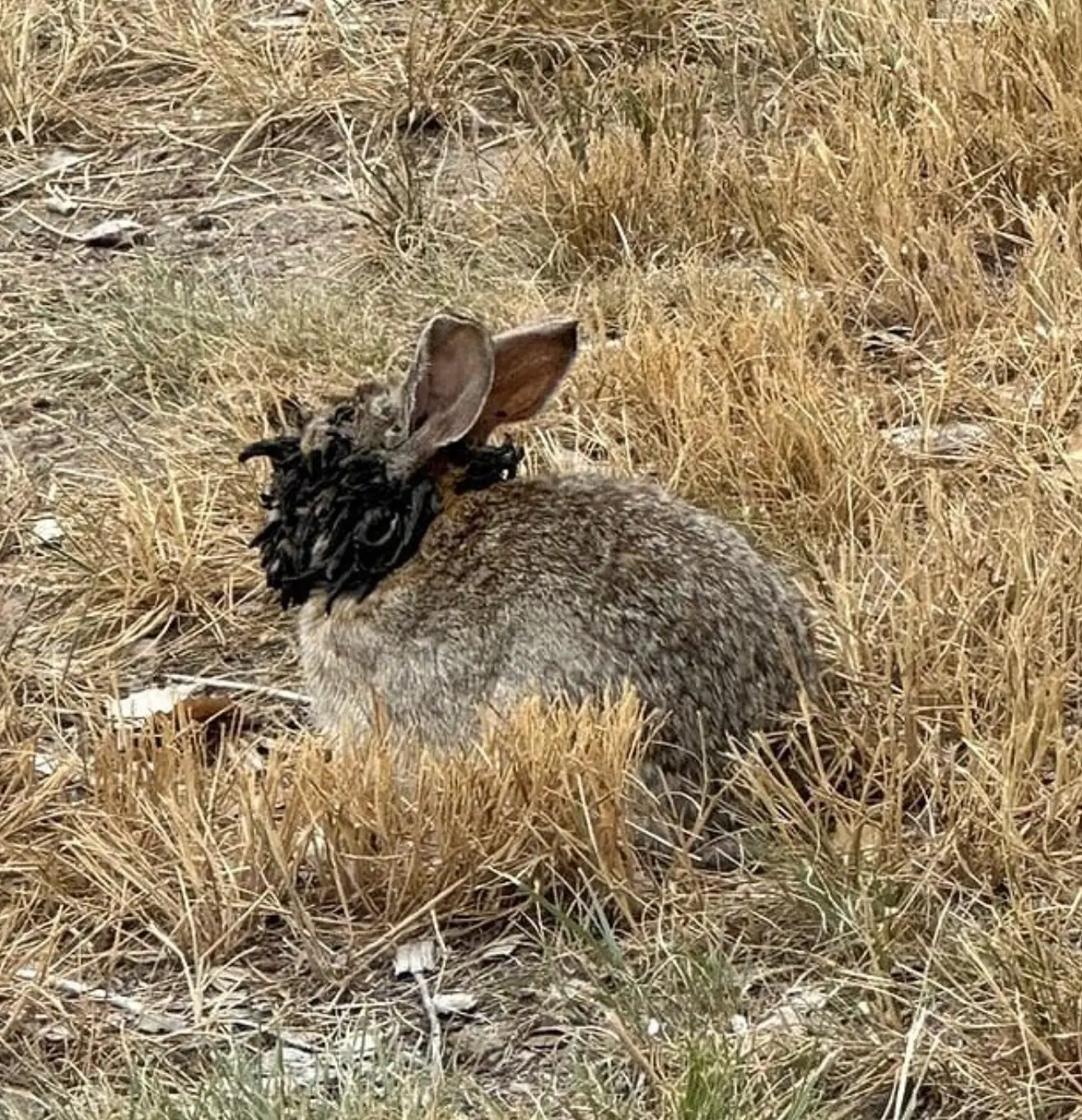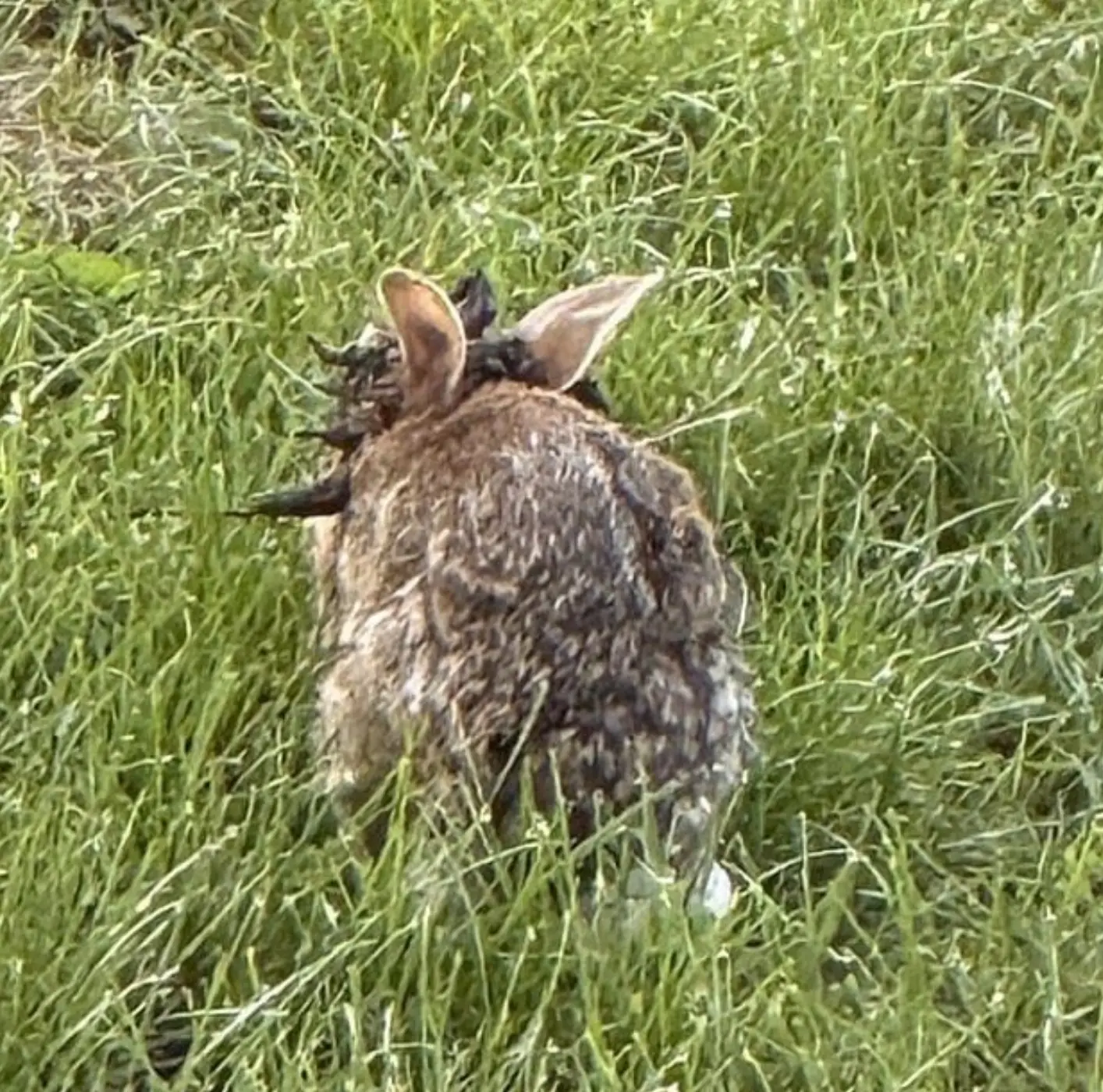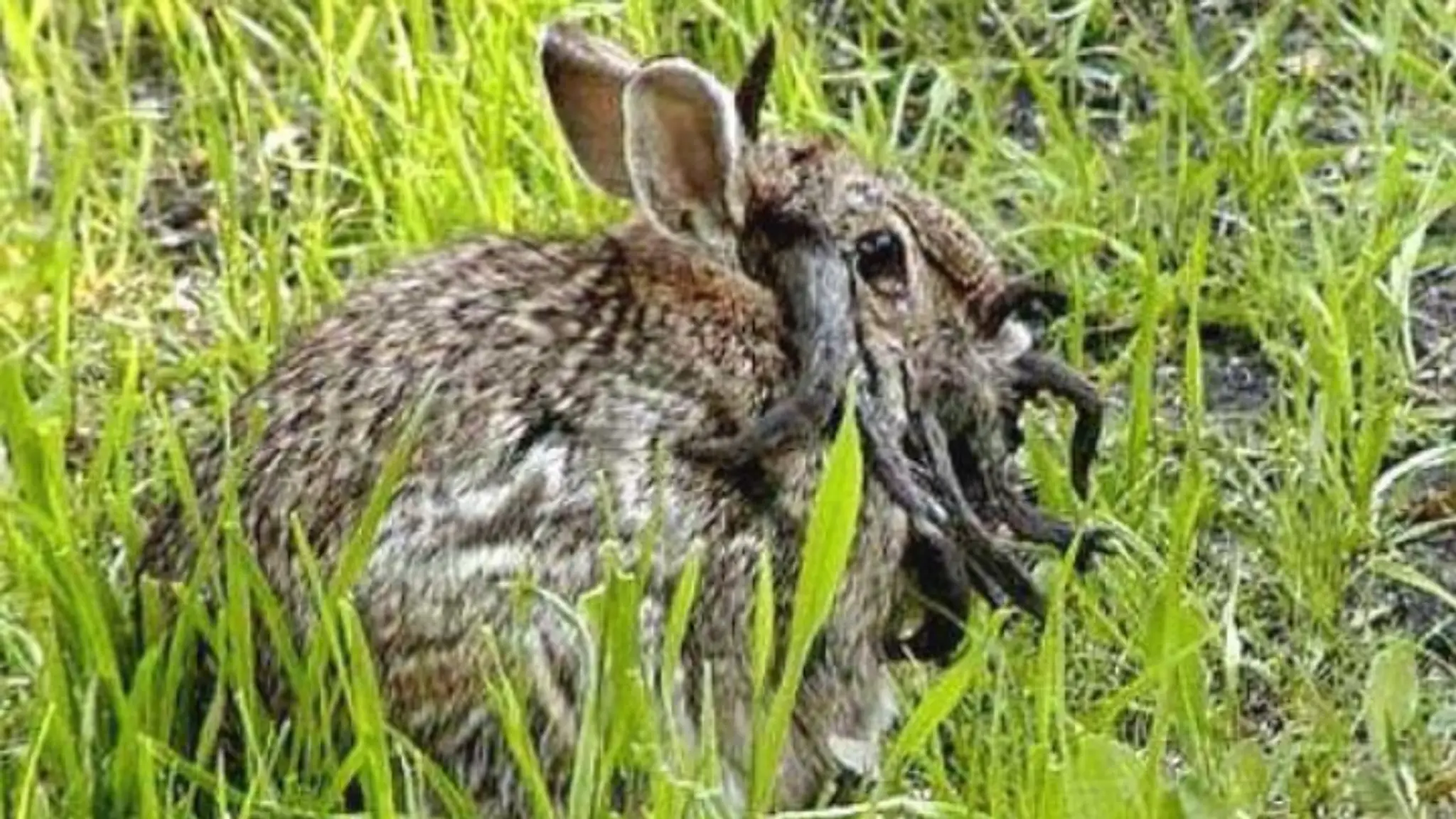Animal lovers everywhere have been left concerned after photos were taken of several wild rabbits with strange growths on their faces and necks.
In images that look like something straight out of a horror movie, the poor animals have earned the nickname 'zombie rabbits' online as worried pet owners in the US have been questioning what has happened.
A Twitter user shared pictures of the animals and wrote, 'Rabbits in Colorado spotted with tentacle-like growths on their heads', and it wasn't long before the internet ran with it.
Some called them 'zombie rabbits' or 'Cthulhu bunnies' after the fictional H. P. Lovecraft character.
Advert
Others joked: 'It begins!' and 'the zombie apocalypse is upon us!' while another joked it was poor timing for their forthcoming move to Colorado.
Now, experts have tried to calm people's fears and have revealed what they believe the cause is and how you can keep your pets safe.

According to experts at Pet MD, the rabbits are suffering from cottontail cutaneous papilloma virus, sometimes known as shope papilloma virus.
What is shope papilloma virus?
It is common in wild rabbits, although it can apparently also be seen in pet rabbits too, and usually occurs in the summer and autumn.
The disease is spread by infected mosquitoes and ticks, and causes the masses to grow, which can then turn into malignant tumours.
Surgical removal is often recommended for domestic rabbits, and a biopsy is done to see if it is cancerous.
It tends to be mostly seen in cottontail rabbits, but can also be found in other breeds.

The virus is part of the Papovaviridae family, and it causes growths and lesions on the upper half of the bunny's body.
It usually impacts the face, neck, and shoulders and is mostly found on the eyelids and ears. Ouch.
What should pet owners do?
According to local news outlet KDVR, the Colorado Parks and Wildlife Department (CPW) has said concerned members of the public have told them about the animals they have seen with the disease.
They say it is only concerning when it prevents a rabbit from being able to eat, and sometimes they manage to fight the virus by themselves.
CPW spokesperson Kara Van Hoose told KDVR: "There’s no overt concern needed for pet owners.
"We would just say to keep those wildlife principles in mind when you do have them out: Keep them on leash, keep them away from wild animals just in case, but it is not something necessarily we see transferred from rabbits to dogs.”
Can humans catch shope papilloma virus?
Luckily, the virus isn't known to spread from animals to humans.
However, Colorado Parks and Wildlife (CPW) is still urging people who encounter any infected wild rabbits not to get up close to them, WLBT3 reports.
